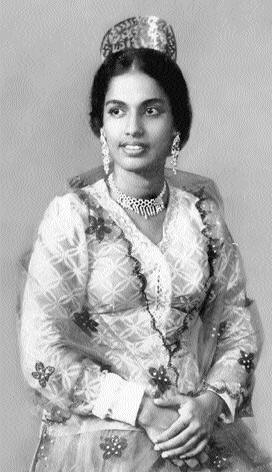|
dailynews |
|
|
|
|
|
OTHER LINKS |

|

|

|
Gajaman Puvatha: A symbolic satireDRAMA: Dayananda Gunawardena, the pioneer of the Sri Lankan docu-drama style dramatic tradition, produced Gajaman Puvatha, Ananda Javanika and Madura Javanika.
Gajaman Puvatha was first staged on 14 October 1975. It was encouragingly accepted and appreciated by the drama audience. After a lapse of nearly three decades, it has returned to the Sri Lankan stage despite the untimely demise of its creator. His son Wasantha together with the former cream of the cast has efficiently handled the task of re-staging Gajaman Puvatha. Indeed, there are a few inclusions among the cast. The performances of the veterans vie with one another. The characterization of Gajaman Nona, Elapatha Mudali and John Doyle as to their human nature and relationships is a sublime task. They are not stock characters. Gajaman Nona and Ranchagoda Lamaya are contrasting characters. Ranchagoda Lamaya itself is a sub plot illuminating the contrast between the two poetesses. Political powerThe setting is local and regional within this country. A rapidly changing colonial political situation is narrated. The Dutch were giving way to the English. This flux and transfer of political power are aptly exposed in the eight acts of the drama. Aspects of dialogue take two key forms - prose and verse. Language is the principal medium in the play. The play itself is a microcosm of elegant, powerful, enchanting language application. It is highly creative and exuberantly poetic. It is not day-to-day common language. In particular the poetic forms with heavy use of metaphor, alliteration and rhyme, power packed with rhetoric beauty, emotive force, varying dialects and syntacic-semantic vitality are educative to many a linguistic novice. Dramatic effects are the most significant, relevant and epoch-making in the dramatic tradition. The main conflict pivots around the so-called friendship between Gajaman Nona and Elapatha Mudali. Both are competent poets. But Elapatha Mudali nursed a sensual soft feeling for Gajaman Nona. She did not dislike him. In fact she appears to have encouraged his pursuits. But she once declared that she liked him because of his poetry. The other conflicting areas of interest are the conflict between the Dutch rulers and Gajaman Nona's father, between Gajaman Nona and Ranchagoda Lamaya and that between John Doyle and the British rulers. Moments of emotional tension and suspense are inbuilt in Gajaman Puvatha. The best situation is that produced by Elapatha Mudali breaking in at midnight to meet Gajaman Nona when she is in an emotionally distressed situation because of her father being engaged in a life threatening task (catching wild elephants). Elapatha Mudali being intoxicated with sensual feelings behaves like a sex pervert. Poetic discoursesDramatic irony is adequately presented in the poetic discourses between Gajaman Nona and Elapatha Mudali. A comic effect on the audience and a tragic effect on Elapatha Mudali are created when Gajaman Nona says, "Mudlier, we shall confine our love to poetry only", in Act 4. The stage effects of a technical nature, costumes and music etc are additions to Gajaman Puvatha in making it a docu-drama par excellence. The entire play is based on ideas, discourses, and debates-some in prose and some in verse. Essentially the drama appears to be a combination of the three main types of comedy, history and tragedy, with accent on history and tragedy. Towards the end of the drama, the audience builds a sense of pathos at the plight of Gajaman Nona. Gajaman Nona signifies the present day artist living under difficult socio-economic conditions; being a victim of the vicissitudes of fortune. Gajaman Puvatha is a symbolic satire on the unkind, harsh and insecure socio-economic millieu of the Sri Lankan artist. |
 He faced enormous difficulties and challenges while searching for
historical data sources and context development for imaginatively
creating these dramas. Of these the most researched, experimented and
significant is none other than Gajaman Puvatha.
He faced enormous difficulties and challenges while searching for
historical data sources and context development for imaginatively
creating these dramas. Of these the most researched, experimented and
significant is none other than Gajaman Puvatha. 






